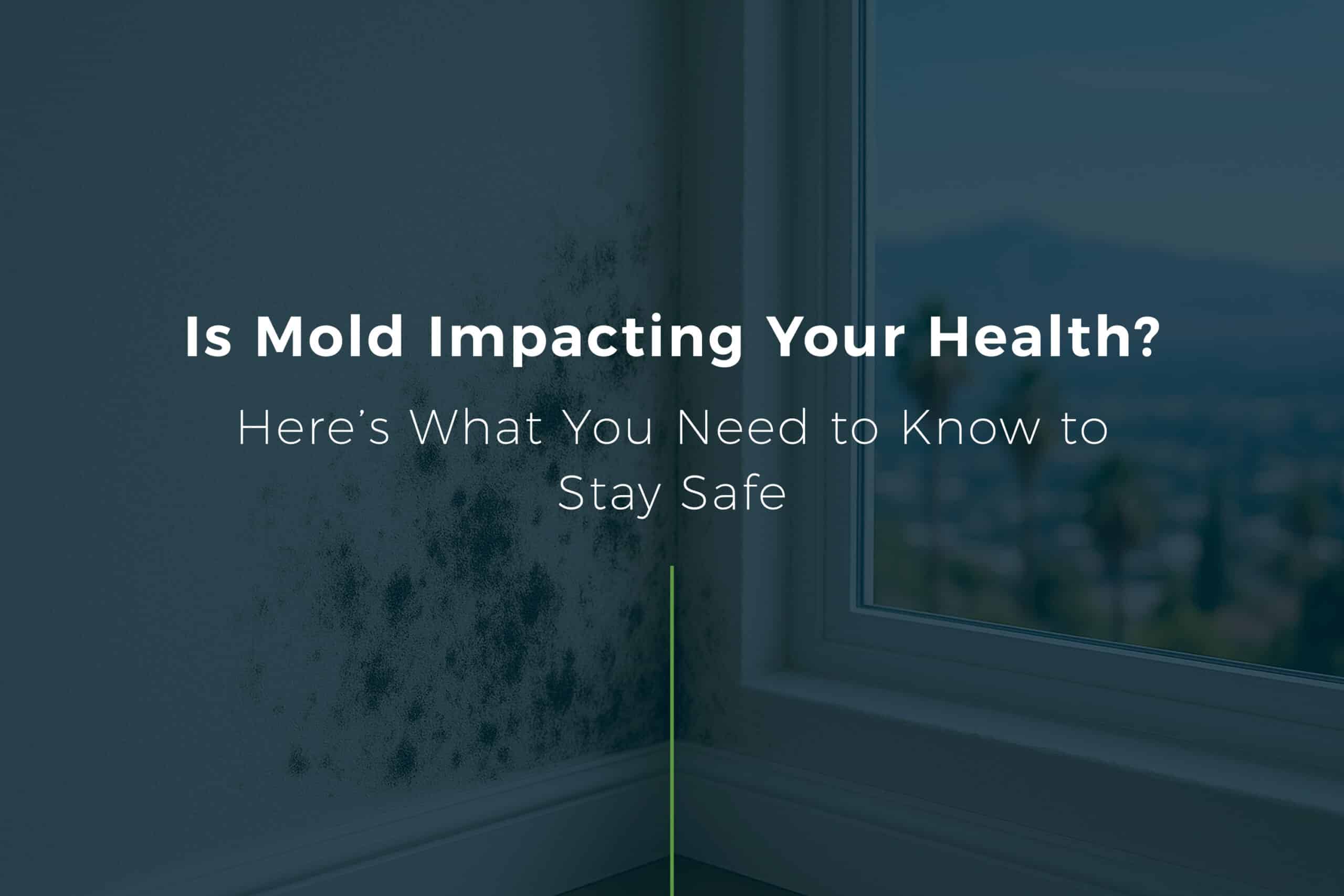
Adviro | Mold Blog | April 3, 2025 | V2
Is Mold Impacting Your Health? Here’s What You Need to Know to Stay Safe
Mold may seem like a minor household nuisance—something a little bleach and elbow grease can clean up. But according to a recent episode of the Naturally Nourished podcast, mold can be far more than an unsightly inconvenience. It can quietly and persistently affect your health, disrupt your immune system, and contribute to a long list of chronic symptoms.
Functional medicine expert Ali Miller, RD, and co-host Becki Yoo explore mold exposure in depth, discussing symptoms, sources, testing methods, treatment strategies, and how to detox both your home and your body. Here’s what you should know—and why it’s time to take mold seriously.
Mold: A Natural Foe in the Wrong Conditions
Mold is a type of fungus, and not all of it is harmful. Some mold species are used in foods (like cheese) or medicine (like penicillin). However, the concern arises when toxic molds release mycotoxins—harmful byproducts that can trigger inflammation, respiratory issues, and even neurological symptoms.
Mold is virtually everywhere in our environment. It thrives in damp, warm, and poorly ventilated areas, particularly indoors, where the lack of airflow can trap spores and allow them to multiply. Hidden leaks, damp drywall, carpeting, bathrooms, basements, HVAC systems, and even washing machines are common hotspots.
Symptoms of Mold Toxicity: Often Misdiagnosed
Mold toxicity doesn’t always scream its presence. Instead, it can mimic other conditions and cause vague but chronic symptoms, which is why it’s often overlooked by conventional medicine.
Some of the most common symptoms include:
- Persistent coughing, sneezing, or throat clearing
- Congestion, sinus infections, and ear issues
- Headaches, memory problems, and brain fog
- Anxiety, mood swings, or insomnia
- Skin rashes or itching
- Fatigue or fibromyalgia-like aches
- Sensitivity to smells, chemicals, or fragrances
- Urinary urgency or incontinence (especially in women and children)
- Increased frequency of illness due to immune suppression
In children, recurring infections, eczema, bedwetting, and behavioral changes may also signal mold exposure.
Environmental Exposure: Where Mold Hides
Mold isn’t always visible, and musty odors can become normalized over time. People may live in mold-contaminated homes for years, unaware of the hidden dangers.
Common sources of mold include:
- HVAC systems and dirty air vents
- Leaky roofs, pipes, or poorly sealed windows
- Carpets and furniture affected by past flooding or humidity
- Laundry rooms, especially front-loading washers
- Food items like aged cheese, dried fruits, peanuts, and coffee
- Bathrooms with poor ventilation or cracked grout
Even organic foods like dried fruits or mold-prone items such as nuts and grains can carry mycotoxins, particularly if stored in humid conditions.
How to Take Action: First Steps for Mold Safety
Ali Miller recommends beginning with simple but powerful lifestyle adjustments:
1. Support Your Body’s Detox Pathways
Prioritize antioxidant-rich foods like leafy greens, garlic, herbs, berries, and sulfur-containing vegetables (onions, broccoli, cabbage). These help your body process and eliminate toxins more efficiently.
2. Improve Air Quality and Clean Strategically
- Use HEPA air purifiers or air filtration systems
- Clean HVAC vents annually; install UV lights if possible
- Use natural cleaning agents like white vinegar, tea tree oil, or hydrogen peroxide
- Keep rooms dry using dehumidifiers and exhaust fans
- Wipe down wet areas promptly to prevent mildew buildup
3. Test and Assess—Professionally
If symptoms persist or you suspect mold exposure, it’s time to test. Both your environment and your body can be assessed. Home testing kits are available, but professional mold inspections—like from Adviro—provide greater accuracy: especially when using spore collection, air sampling, or mycotoxin analysis.
To confirm internal exposure, functional medicine practitioners often recommend urine mycotoxin testing, which detects mold toxins in the body. Blood panels for IgG and IgE responses can also provide insight into immune reactions to mold.
Conventional vs. Functional Approaches
Mainstream medicine typically treats the symptoms of mold exposure—antihistamines for allergies, inhalers for asthma, corticosteroids for inflammation. But this doesn’t address the root cause.
Functional medicine goes deeper, focusing on immune support, detoxification, gut health, and reducing overall toxic burden. Supplements such as serum-derived immunoglobulins, N-acetyl cysteine (NAC), glutathione, saccharomyces boulardii, and high-potency probiotics may be recommended to help clear mold-related toxins and rebuild resilience.
Sauna therapy, especially infrared sauna use, is another effective way to eliminate mold-related toxins through sweat. Physical activity, sunlight exposure, and regular hydration also support natural detoxification.
Why Professional Mold Testing Matters
While cleaning, detoxing, and eating clean are essential steps, none of it matters if mold remains in your environment. That’s where professional mold testing becomes critical.
Adviro is a trusted name in environmental testing with over 15 years of experience. We specialize in identifying hidden mold issues that could be undermining your health.
When you choose Adviro, you get:
✅ Accurate mold detection using industry-standard methods
✅ Experienced professionals who know where mold hides
✅ Detailed reporting you can trust
✅ Peace of mind knowing the job is done right
Whether you suspect mold or just want to rule it out, Adviro provides the clear answers you need to move forward confidently.
Take the First Step Toward a Healthier Home and Body
Mold toxicity is real—and it often goes undiagnosed until symptoms become overwhelming. But the good news is that with the right testing, cleanup, and support, you can take control of your health and restore balance.
Don’t guess—test. If you suspect mold in your home or have unexplained symptoms, schedule an inspection with Adviro today.

Recent Comments